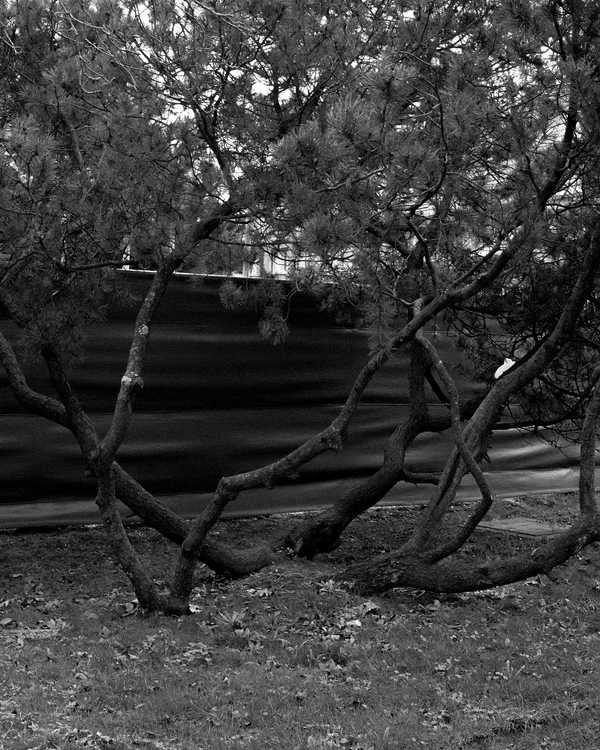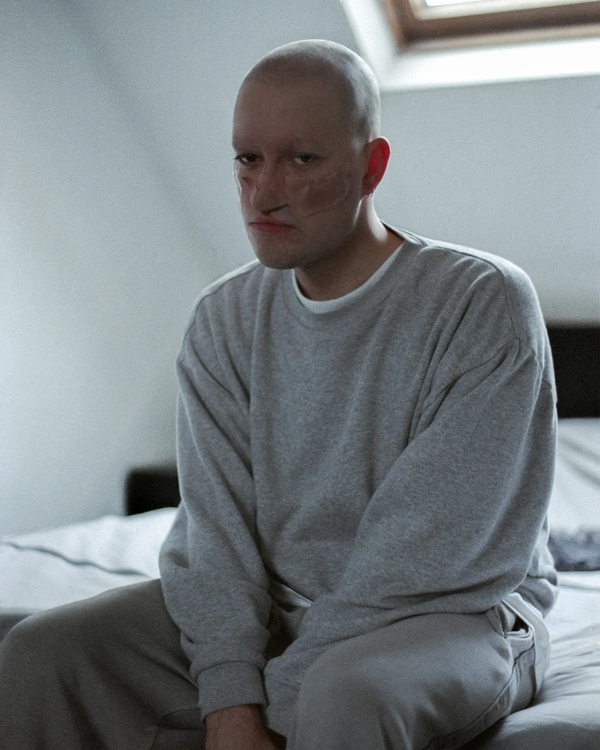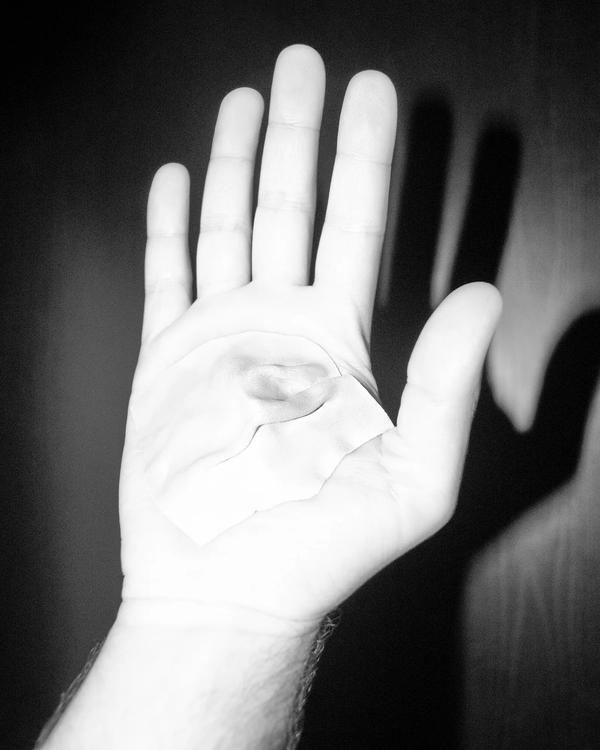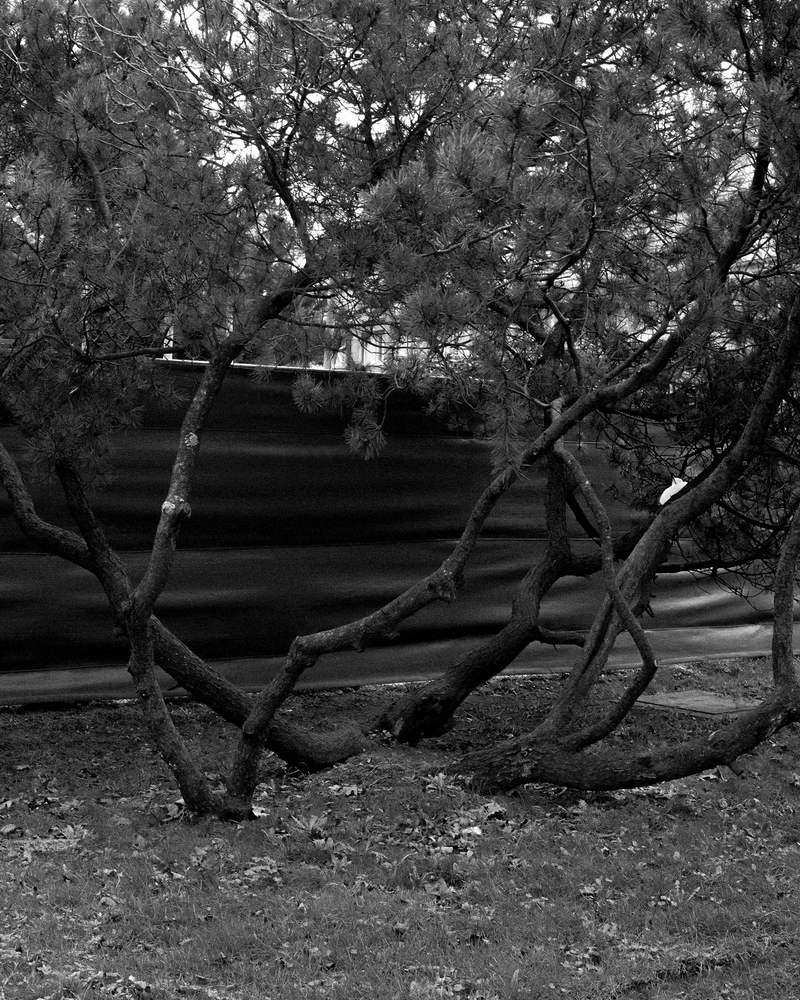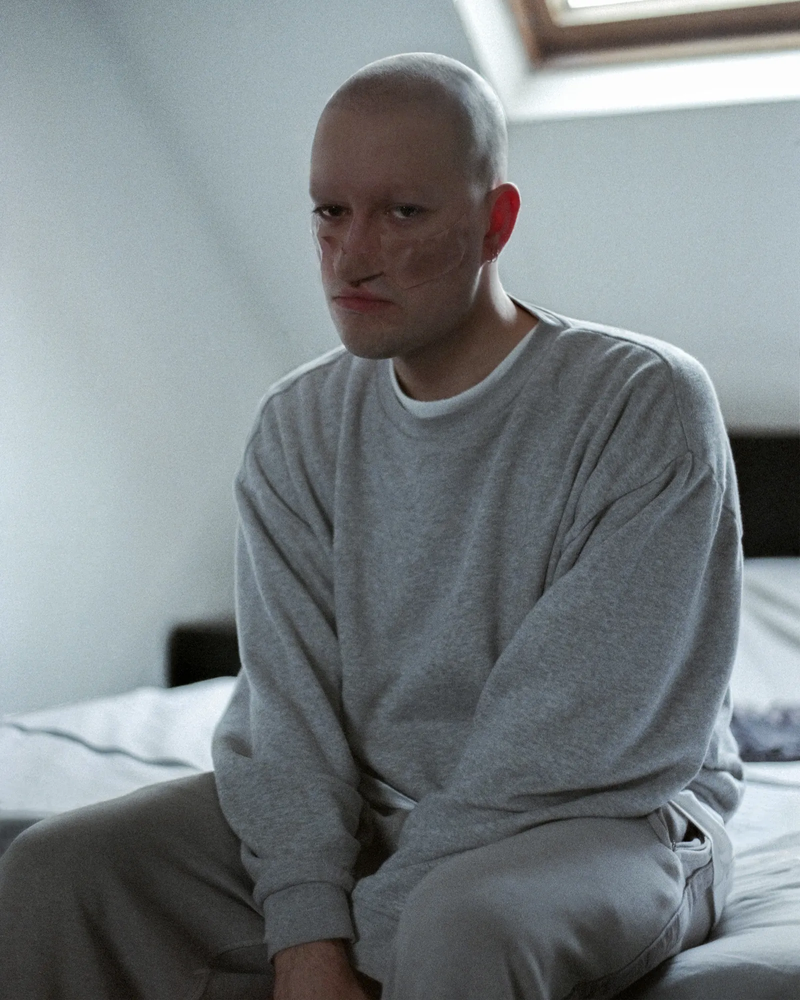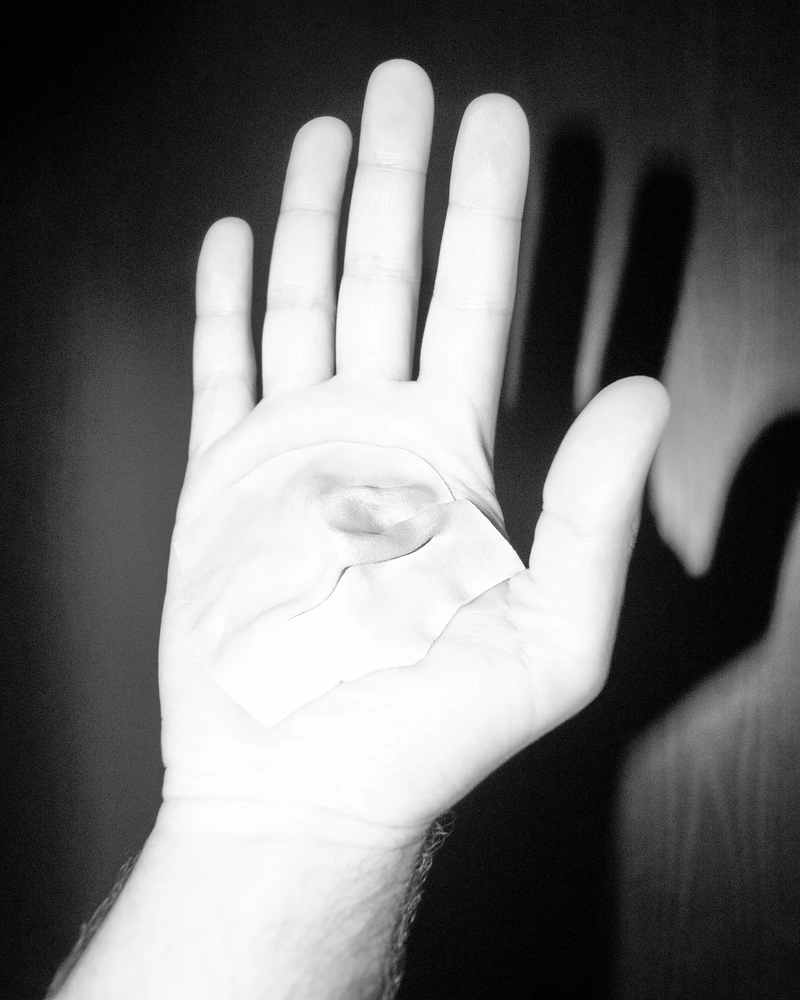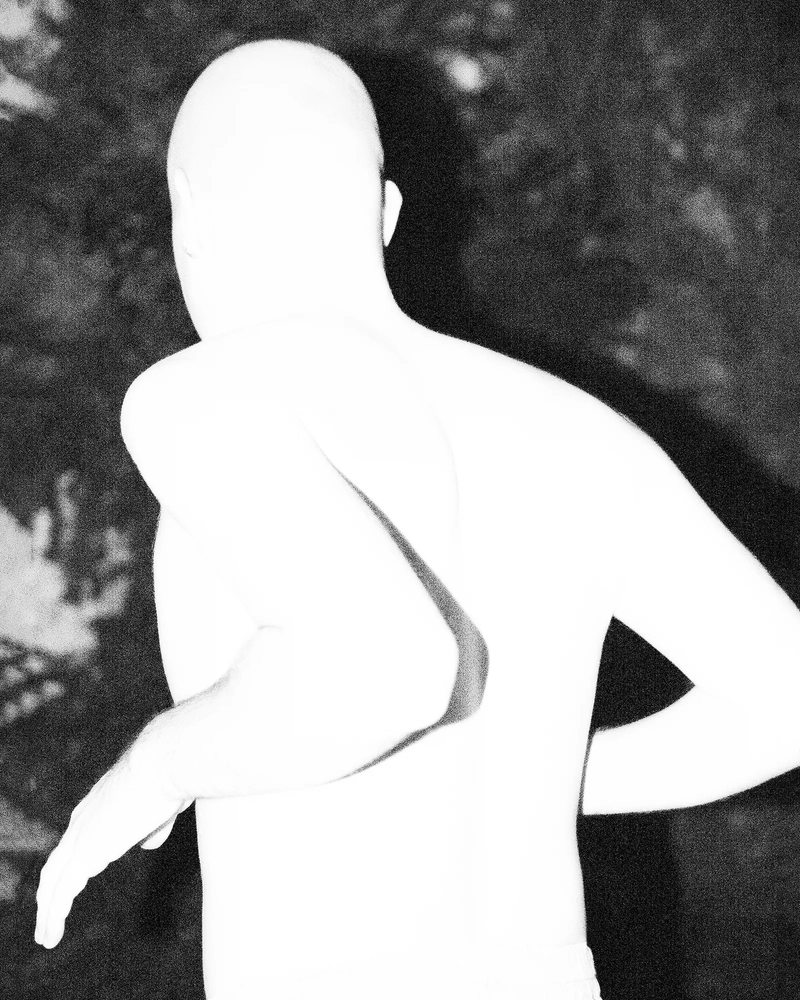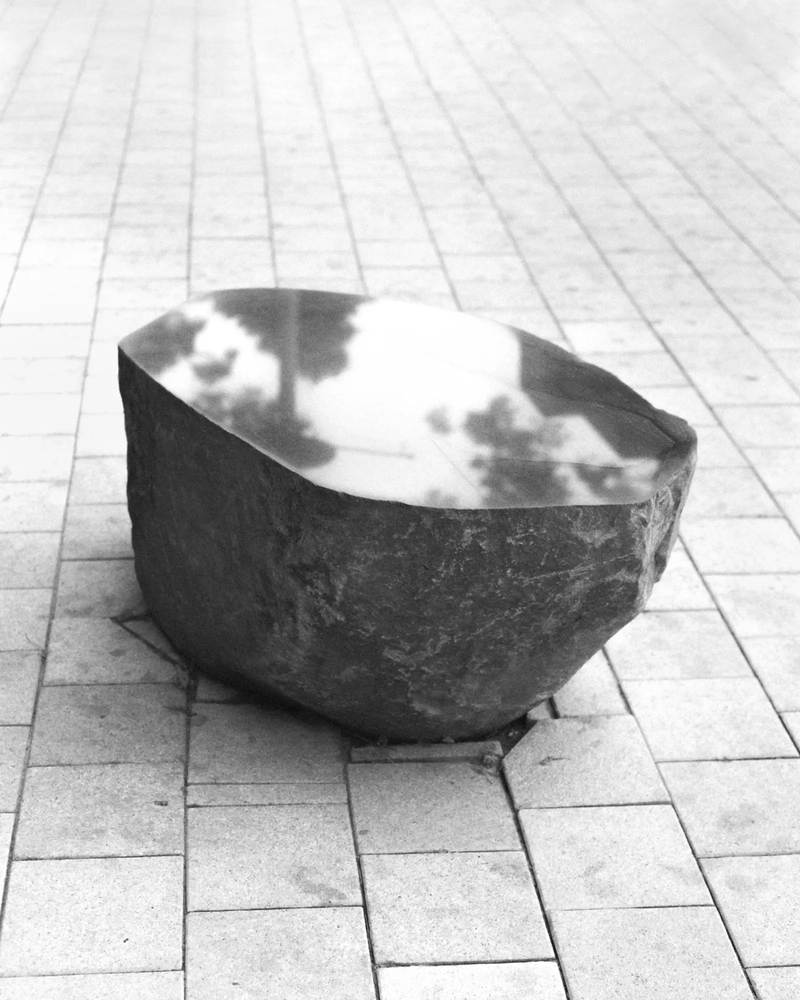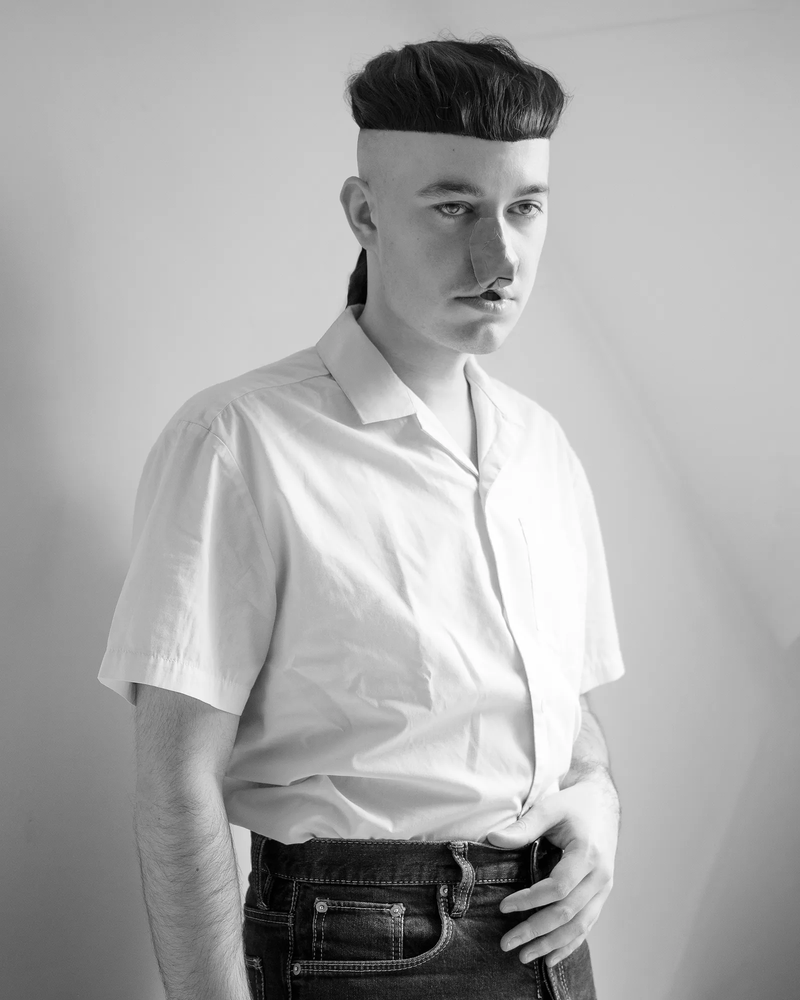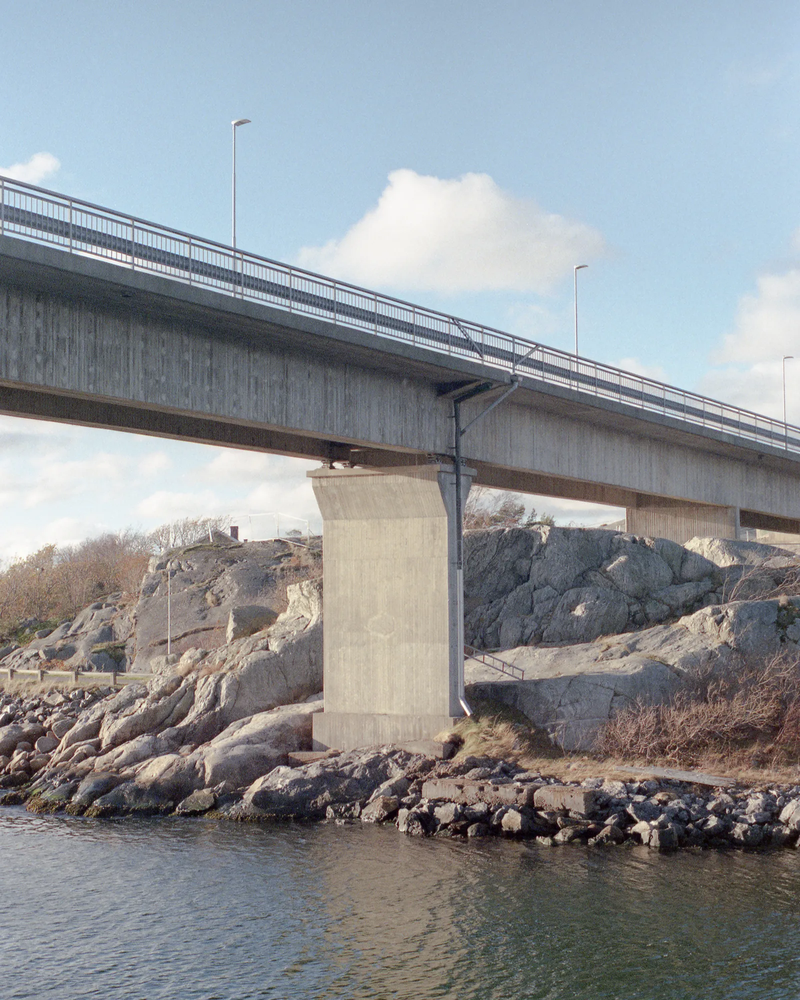Eerie World of Inflicted Wounds
-
Published16 Dec 2020
-
Author
In his inwards-looking series Error in Ypsilon, Belgian photographer Frederic Pels exposes physical and psychological distortions, the outcome of a hostile and dismal environment that wounds us.
In his inwards-looking series Error in Ypsilon, Belgian photographer Frederic Pels exposes physical and psychological distortions, the outcome of a hostile and dismal environment that wounds us.
When a nuclear power station exploded in Chernobyl, Ukraine, in the former Soviet Union, due to an unexpected power surge during a reactor systems test in 1986, Frederic Pels wasn’t born yet.
Large amounts of radioactive materials were released into the environment. While the Soviet government tried, initially, to hide the disaster from the public, dangerous radionuclides floating in the air deposited in valleys, rivers, forests, and cities across Europe. At the time of the disaster, Pels’ parents were vacationing in Austria, one of the countries that, along with Ukraine and Poland, were most affected by the radioactivity released by that devastating accident. Some radioactive particles might still be circulating today, Greenpeace reports, 34 years later.
Pels, who’s Belgian, was born nine years after that harrowing accident. He was born with schisis or a cleft lip, the incomplete fusion of the baby’s facial tissues - a physical distortion in his flesh that has led him thinking, along with the more immediate medical and genetic explanations, to those dreadful events in Ukraine nine years prior.
Over the years, a number of surgical operations stitched his facial tissues and his lips; yet, through his childhood and adolescence, he grappled with the visible mark of his diversity, struggling to form an image of “how I would have looked like in other circumstances.”
As an invisible harm threatened the skies of Europe more than three decades ago, today another invisible danger holds back the world and relegates it, as much as possible, to the secluded space of our homes, separated, afar, powerless.
By tracing his private story to such tragic events in Ukraine, Pels broadens the scope of his personal query and wonders how such world calamities, because of the invisible threat they present, shape our environment, our daily lives, the way we act and react, challenging our cognition and our sense of control and preparation.
That’s how his ongoing work, Error in Ypsilon, aims at creating a social consciousness so that we don’t let our guards down: he rather asks us to face such disasters and the consequences they carry in our lives, the palpable, visible effects on our own flesh and in our own psyche.
Constricted by a self-isolation for the global pandemic, Pels temporarily abandoned the idea of including other subjects into his project, but focused the lens inwards. In the privacy of his home, working in his backyard and sometimes his bedroom, through a fiction-documentarist approach that allowed him to intersect different layers, Pels started impersonating imaginary subjects with physical distortions. He drew from the horrifying images that documented the tragedy of the atomic bombs in Japan and the consequences on the population. With heavy makeup altering his appearance, foam prosthetics, or shaving his heads, wearing wigs, he staged the physical and psychological effects of these unpredictable and dangerous events, showing their consequences on our body and our soul.
Other images recall these same feelings of distortion, fracture, change: the twisted branches of a small tree, like a natural response to an imperceptible threat; a hole in a rock, among the shrubs, as a den leading to an uncomfortable shelter; the shiny surface cut into a rock and reflecting the sky, a distant universe balancing the stone’s heaviness.
As the actors he creates and animates in his bedroom, Pels may carry his malformation within him. By raising awareness on a menace we might easily dismiss but that we ought to always consider possible, today more than ever, Pel’s Error in Ypsilon helps us reevaluate the fragility of our existence, embracing the distorted, twisted, strained, deformed parts of ourselves, visible or hidden, making us aware that despite our differences there is no difference at all.
--------------
Frederic Pels is an artist based in Antwerp, Belgium. His work is mainly focused on the undefined explorations on personal attachments towards physical- and environmental distortions caused by certain setbacks. Follow him on PHmuseum and Instagram.
Lucia De Stefani is a writer focusing on photography, illustration, culture, and everything teens. She lives in New York. Find her on Twitter and Instagram.
--------------
This article is part of the series New Generation, a monthly column written by Lucia De Stefani, focusing on the most interesting emerging talents in our community.
